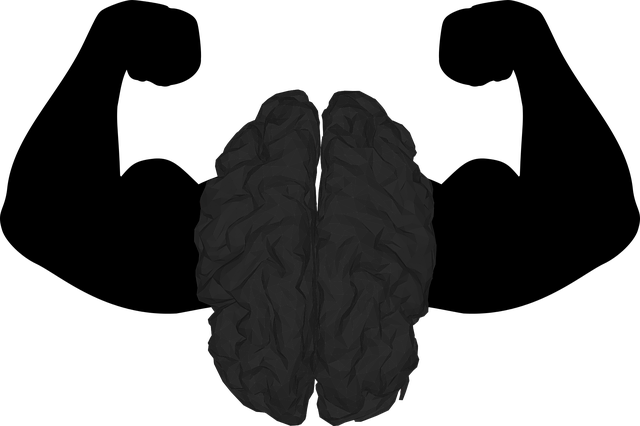Depression significantly impacts daily life and well-being, but early recognition of signs like persistent sadness or changes in appetite can prevent and manage it effectively. Aurora Psychological Testing offers advanced tools for depression prevention through therapy sessions with professionals who develop coping strategies, enhance emotional regulation, and improve stress management skills. Their method provides detailed emotional profiles to create personalized therapy plans focusing on mood management and resilience-building. Integrating these insights into Mental Health Education Programs equips individuals to recognize early warning signs and practice self-care. Aurora Psychological Testing Therapy uses evidence-based practices like CBT, IPT, and Mindfulness Meditation combined with crisis intervention and resilience building. Adopting a healthier lifestyle through exercise, quality sleep, balanced nutrition, and stress reduction methods complements these efforts. This holistic approach fosters emotional well-being and empowers individuals to cope better, promoting mental health resilience within communities.
Depression is a prevalent and profound mental health challenge, but prevention is key. This comprehensive guide delves into effective strategies to combat this elusive disorder. From recognizing subtle signs and symptoms to exploring powerful tools like Aurora Psychological Testing, which provides valuable insights for tailored prevention plans, we cover it all. Additionally, we discuss evidence-based therapy approaches, lifestyle modifications, and building resilience for long-term mental well-being. Empower yourself with these strategies to foster a brighter, more resilient mindset.
- Understanding Depression: Recognizing Signs and Symptoms
- Aurora Psychological Testing: Unlocking Insights for Prevention
- Therapy Approaches to Combat Depression
- Lifestyle Changes for a Brighter Mindset
- Building Resilience: Strategies for Long-Term Well-Being
Understanding Depression: Recognizing Signs and Symptoms

Depression is a complex mental health disorder that significantly impacts an individual’s daily life and well-being. Recognizing the signs and symptoms early on is crucial for effective prevention and treatment. Many people struggle with depression silently, making it essential to educate ourselves and others about its various manifestations. Common indicators include persistent feelings of sadness, loss of interest in activities once enjoyed, changes in appetite and sleep patterns, fatigue, difficulty concentrating, and thoughts of worthlessness or hopelessness. These symptoms can vary in intensity and duration but are often interconnected, creating a complex emotional landscape.
Aurora Psychological Testing offers valuable tools to navigate these challenges. Therapy sessions with qualified professionals can help individuals develop coping strategies, enhance emotional regulation, and improve stress management skills. By addressing underlying issues and learning effective anxiety relief techniques, one can better prevent depressive episodes. Early intervention through such services ensures that individuals receive the necessary support to maintain a healthy mental state.
Aurora Psychological Testing: Unlocking Insights for Prevention

Aurora Psychological Testing is a powerful tool that offers valuable insights for depression prevention. This advanced assessment method goes beyond traditional diagnostic tools by providing a comprehensive understanding of an individual’s psychological makeup, including their emotional intelligence and coping mechanisms. By identifying potential risk factors and vulnerabilities early on, individuals can benefit from tailored interventions and proactive mental health strategies.
Through Aurora Psychological Testing, therapists gain access to detailed profiles that highlight areas such as emotional regulation, stress management, and cognitive biases. This allows for the design of personalized therapy plans focusing on mood management techniques, promoting resilience and coping skills. By integrating these findings into Mental Health Education Programs, individuals can learn to recognize early warning signs, practice self-care effectively, and foster a healthier relationship with their emotions, ultimately preventing depressive episodes from occurring or escalating.
Therapy Approaches to Combat Depression

Depression can be effectively managed through various therapeutic approaches, with Aurora Psychological Testing Therapy emerging as a powerful tool for diagnosis and treatment planning. This form of therapy involves in-depth assessments to understand the underlying causes of depression, allowing mental health professionals to tailor personalized treatments. By exploring thoughts, emotions, and behaviors, Aurora Psychological Testing provides insights that guide evidence-based practices such as Cognitive Behavioral Therapy (CBT), Interpersonal Therapy (IPT), and Mindfulness Meditation.
In addition to these tailored interventions, Crisis Intervention Guidance and Resilience Building play pivotal roles in preventing and managing depression. CBT, for instance, equips individuals with coping strategies to challenge negative thought patterns and improve mood regulation. Similarly, IPT helps individuals navigate interpersonal challenges that might contribute to depression. Meanwhile, Mindfulness Meditation cultivates present-moment awareness, reducing the impact of stressful events and promoting emotional resilience.
Lifestyle Changes for a Brighter Mindset

Adopting a healthier lifestyle can significantly contribute to preventing and managing depression. Regular exercise, for instance, releases endorphins that boost mood and reduce stress. Aiming for at least 30 minutes of physical activity most days of the week can help improve overall well-being. Additionally, establishing a consistent self-care routine is vital. This involves adequate sleep, a balanced diet rich in nutrients essential for brain health, and engaging in activities that bring joy and relaxation, such as hobbies or spending time in nature.
Incorporating these simple yet powerful stress reduction methods can help build resilience, enabling individuals to better cope with life’s challenges. Even practices like mindfulness meditation and deep breathing exercises, easily incorporated into daily routines through apps or guided sessions, have been shown to effectively reduce symptoms of depression. For a more comprehensive approach, seeking professional guidance through Aurora Psychological Testing Therapy can provide personalized strategies tailored to individual needs.
Building Resilience: Strategies for Long-Term Well-Being

Building resilience is a key component of long-term depression prevention. Aurora Psychological Testing Therapy offers valuable tools for individuals to enhance their coping skills development, fostering a sense of empowerment and control over one’s mental health. Through evidence-based practices, such as cognitive behavioral therapy (CBT), individuals learn to identify and challenge negative thought patterns, develop healthier coping mechanisms, and build emotional resilience.
In addition to these therapeutic interventions, Healthcare Provider Cultural Competency Training plays a crucial role in depression prevention. By promoting understanding and sensitivity to diverse cultural backgrounds, healthcare providers can offer tailored support and effective emotional well-being promotion techniques that resonate with each individual’s unique needs. This holistic approach ensures that everyone has access to appropriate care, contributing to the overall mental health and resilience of the community.
In conclusion, preventing depression involves a multifaceted approach. Understanding its signs and symptoms is the first step, followed by leveraging tools like Aurora Psychological Testing for deeper insights. Various therapy approaches, lifestyle changes, and building resilience are crucial strategies for maintaining long-term mental well-being. By integrating these techniques, individuals can effectively combat depression and foster a brighter, more resilient mindset.














